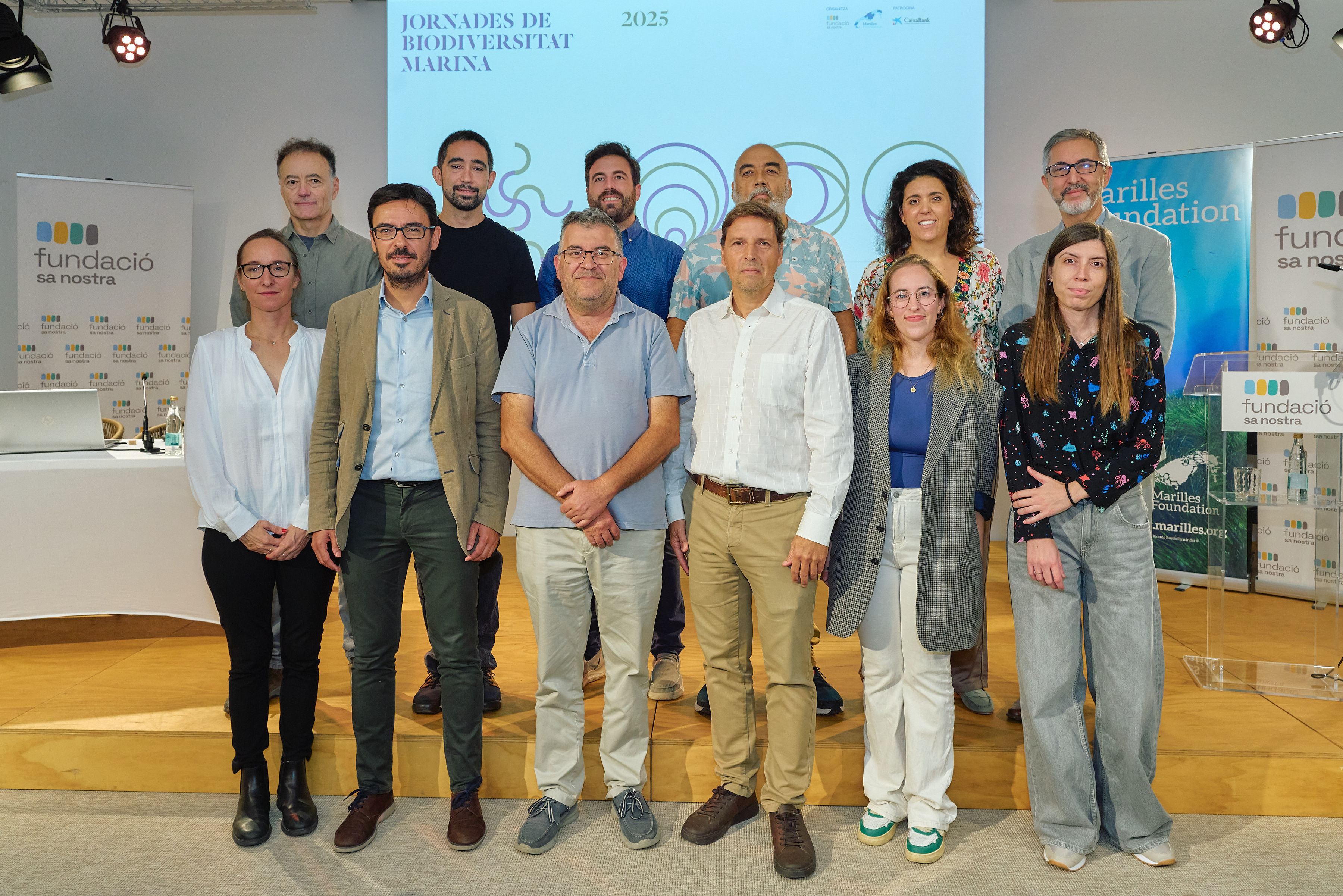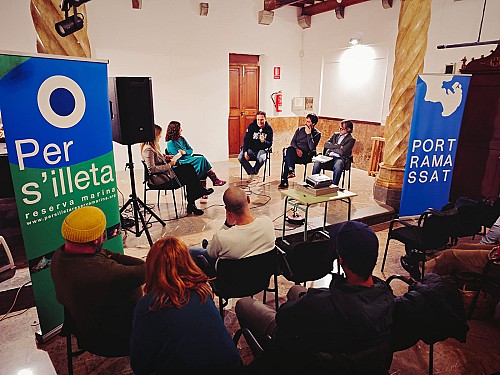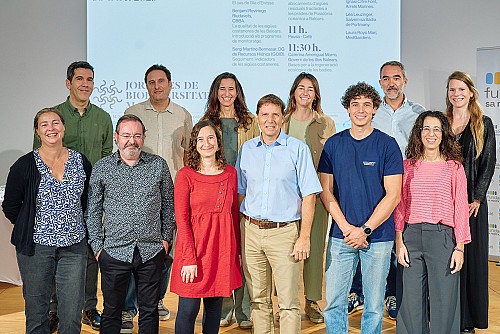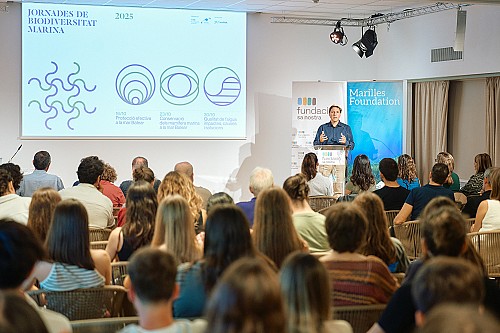Marine biology experts, scientific institutions, and various organisations are participated in the first session of the 2nd Conference on the Conservation of Marine Biodiversity in the Balearic Islands. Nine experts and researchers shared their projects and actions to ensure the effective protection of marine areas.
The minister for agriculture, fisheries and the environment, Joan Simonet; the deputy director general for terrestrial and marine biodiversity at MITECO, Fernando Magdaleno; the head of social action at CaixaBank, Diego Riera; the head of marine protected areas (MPAs) at Marilles, Pablo Rodríguez Ros; and the director of Marilles Foundation, Aniol Esteban, kicked off the conference. Next, Josep Coll, a biologist at the University of Barcelona and doctor of Marine Ecology at the University of the Balearic Islands, spoke about the effectiveness of MPAs. Alicia Gran García, a researcher at the Balearic Oceanographic Centre, Spanish Institute of Oceanography (COB, IEO-CSIC), shared her research on areas of ecological importance identified in the Balearic Sea.
The conference continued throughout the morning with José Antonio García Charton, from the University of Murcia, who explained the factors for success in the marine reserves of the Murcia coast, and Carme Alomar, a researcher at the COB, IEO-CSIC, who spoke about plastic pollution in the MPAs of the Balearic Sea. Next, was the turn of Ana López Martos, from the University of Murcia, who explained how the Marine Governance Observatory (OGMAR) is used to assess sea management competencies. Eneko Aspillaga, from IMEDEA, delved into the connectivity of the Balearic Sea Marine Reserves. Afterwards, Marina Sanz-Martín, from COB, IEO-CSIC, shared the benefits of MPAs for fishing, their role as climate refuges in the Balearic Islands, and the importance of good management of these areas. SOCIB researcher Mélanie Juza used the example of Cabrera National Park to explain the role of operational oceanography. The final presentation, by Ricardo Aguilar (OCEANA), reviewed the evidence of the ecological importance of the waters of the Sierra de Tramuntana.
The morning closed with a debate among the attendees. The conference continued in the afternoon with a closed-door meeting where experts drafted a document noting the conclusions of the meeting and management proposals.
The conference continued for two more days. On the 23 October, the debate focused on the conservation of marine mammals, while on 30 October, the focus was on water quality.
Organised by Marilles Foundation and the Sa Nostra Foundation, the conference is funded by CaixaBank. Its main objective is to create a space to share knowledge and discus best practices for monitoring and conserving marine biodiversity, both in the Balearic Islands and in other regions of the Mediterranean.
Marilles in the media
- 24/10/2025 Diario de Mallorca: "Analizan los avances en la conservación de cetáceos en el mar balear"
- 07/10/2025 El Diario.es: "A la mar Balear, volem pa amb oli"
- 08/06/2025 El Mundo: "Macron da comienzo a la cumbre de Niza para salvar los océanos y critica la ausencia de Trump: "Los océanos se han convertido en el salvaje oeste""





